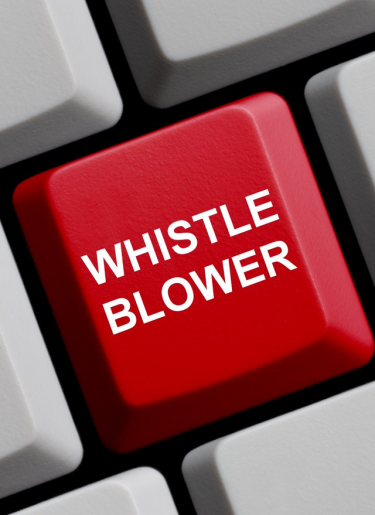
Given the region’s concerted emphasis on economic security, the concept of ‘whistleblowing’ is assuming increasing importance in the laws of the Middle East. The pivotal role played by employees in highlighting wrongdoing is coming into focus, and the view that whistleblower protection may enhance confidence in markets and promote good corporate governance, is gaining increasing acceptance.
What is whistleblowing?
Whistleblowing is not defined by UAE law. Essentially however, whistleblowing is a disclosure of (often confidential) information that exposes illegal or unethical practices within an organisation. The disclosure is usually made by an employee or an ex-employee of the entity itself, for example via a confidential whistleblowing hotline, or an independent third party, such as a regulatory authority.
Current position
In terms of the obligation to report wrongdoing, the UAE Penal Code contains a requirement that all individuals in the UAE report criminal activity. However, in practice, this requirement is not rigorously enforced and it also fails to address unethical practices or go on to provide protection from retaliation for those who report criminal activity. Until recently, the UAE had not specifically provided for whistleblower protection. Accordingly, whistleblowing has traditionally been a less common practice in the UAE than in other developed jurisdictions, particularly in the US where whistleblowers are not just protected but, in many cases, are incentivised to make disclosures. The legislative landscape in the UAE is changing with the introduction of the following:
Financial Crime Law
The Financial Crime Law (Dubai Law No. 4 of 2016 on Financial Crimes) introduced a degree of whistleblower protection for the first time in the UAE, in cases where the disclosure:
Where a disclosure meets the criteria set out, the individual disclosing it will be protected against prosecution and/or disciplinary action. Whilst this goes some way to implementing protection for whistleblowers, it is relatively narrow in scope. Moreover, given its relatively new inception, the law remains to be tested to any significant degree, and is therefore unlikely to instill widespread confidence for would-be whistleblowers, at least at this stage.
Dubai International Financial Centre (DIFC) Operating Law
In addition to the Financial Crime Law, further strides have been made by the DIFC Authority in the form of the DIFC Operating Law (DIFC Law No. 7 of 2018), which specifically includes both an obligation to disclose certain conduct and explicit whistleblower protection.
The DIFC Operating Law provides that a ‘Registered Person’ (in short, any registered entity in the DIFC) must disclose any matter that involves:
Failure to disclose where the obligation arises may result in a fine of USD 10,000.
In terms of whistleblower protection, the DIFC Operating Law provides that those making good faith disclosures in accordance with the law shall not, as a result of making the disclosure, be:
Any act in contravention of the above may result in a fine of USD 30,000.
Despite the above, the scope of the DIFC Operating Law is relatively narrow in the sense that it relates to disclosures in respect of suspected contraventions of legislation by a Registered Person and would not include, for example, unethical practices by that entity. However, given the obligations imposed on DIFC companies as a result of the DIFC Operating Law, it will likely promote an increased focus on governance with steps such as:
Conclusion
Companies in the UAE (including the DIFC) are increasingly coming under scrutiny to ensure transparency, particularly in relation to financial dealings. The introduction of the Financial Crime Law and the DIFC Operating Law go some way to imposing obligations on Dubai-based organisations and their staff to disclose wrongdoing. However, there is still significant progress to be made in order to fully protect whistleblowers. It is likely that progress will continue in the coming years and may well result in an extension of whistleblower protection, aligned with that in place in other, more established jurisdictions.


